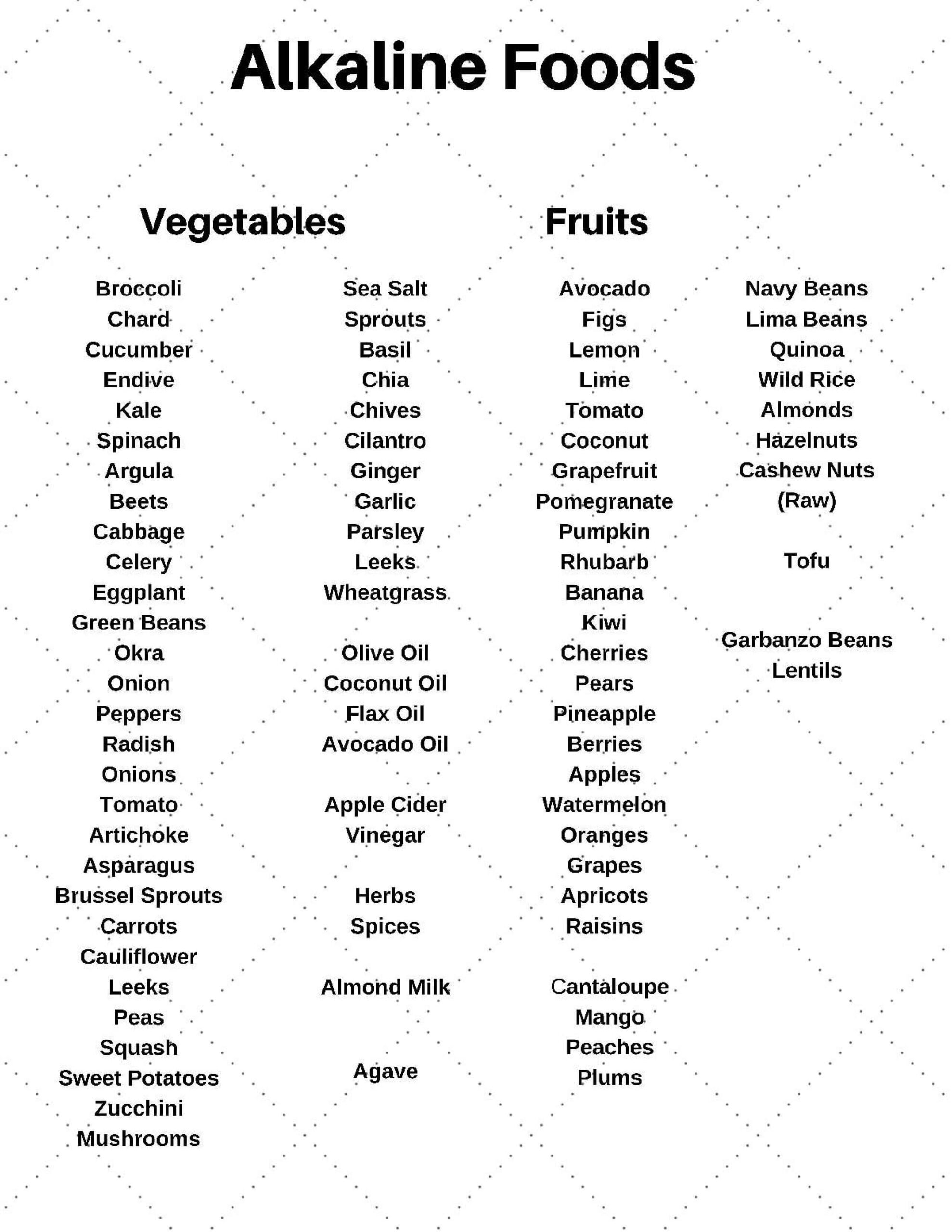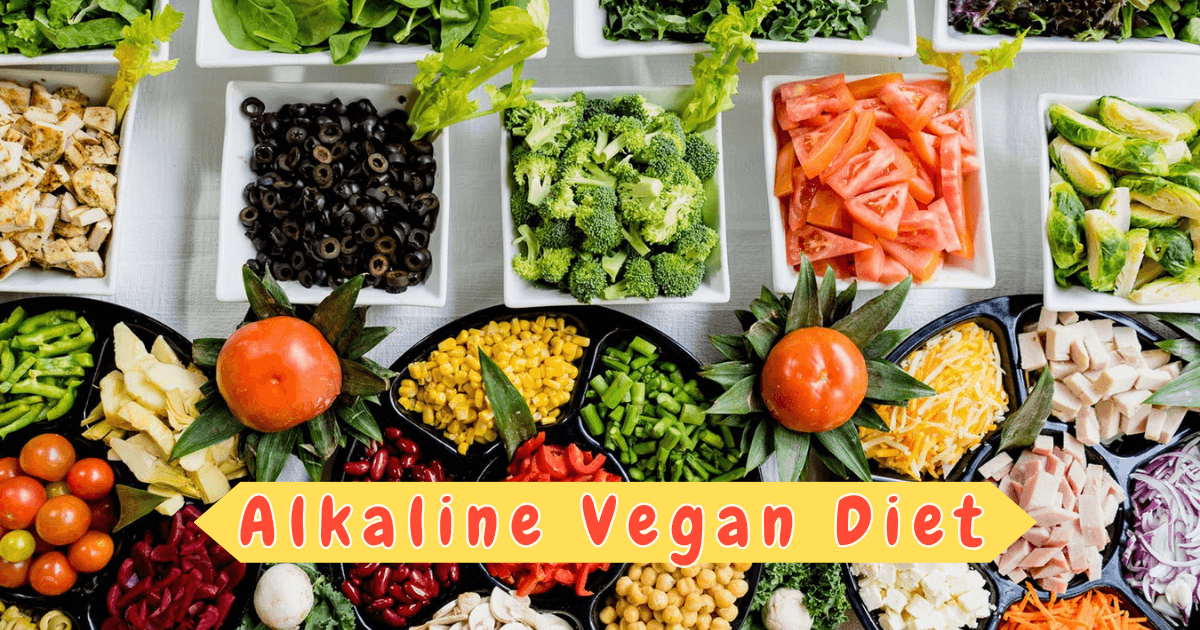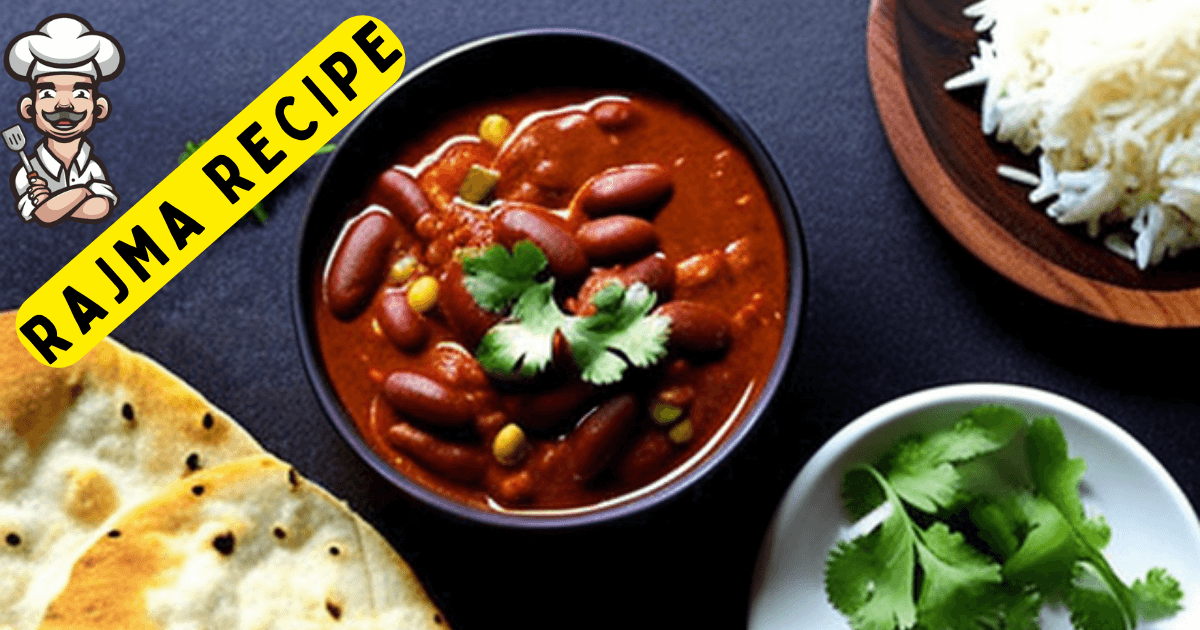Discover the benefits of the Alkaline Vegan Diet and how it can help you achieve optimal health and well-being. In this article, we are also discovering What Are The Top 10 Alkaline Foods? Explore the principles, food choices, and potential impact on your body’s pH levels. How to incorporate this plant-based diet into your lifestyle for long-term vitality. In recent years, there has been a growing interest in plant-based diets as people recognize the importance of consuming wholesome foods that promote overall well-being. Among the various dietary choices available, the Alkaline Vegan has gained significant attention for its potential health benefits. This comprehensive guide will delve into the intricacies of the Alkaline Vegan Diet, shedding light on its principles, the science behind it, and its impact on our body’s pH levels. So, let’s dive in and explore how embracing an alkaline vegan diet can transform your health.
Alkaline Vegan Diet: A Pathway to Vibrant Health
The alkaline vegan diet, also known as the alkaline plant-based diet, focuses on consuming foods that have an alkalizing effect on the body. This dietary approach is rooted in the belief that maintaining a slightly alkaline pH level in the body promotes optimal health and prevents the development of various diseases.
Understanding the Body’s pH Levels
To grasp the significance of the alkaline vegan diet, it’s crucial to understand the concept of pH levels. The pH scale measures the acidity or alkalinity of a substance, ranging from 0 to 14. A pH level below 7 indicates acidity, while a pH level above 7 indicates alkalinity. The human body aims to maintain a slightly alkaline pH level of around 7.4 for optimal functioning.
Read More:
10 Vegan Fall Recipes: Quick & Tasty
The Role Of Nutrients In Good Health
The Alkaline Vegan Diet: Key Principles
The Alkaline Vegan Diet emphasizes the consumption of alkaline-forming foods while avoiding acid-forming ones. By focusing on fresh fruits, vegetables, legumes, nuts, and seeds, individuals following this diet aim to create a pH-balanced internal environment. The diet discourages the consumption of highly processed foods, refined sugars, animal products, and caffeine, which are considered acidic.

Benefits of the Alkaline Vegan Diet
Adopting an Alkaline Vegan Diet offers a wide range of benefits for your overall health and well-being. Here are some advantages that have been associated with this dietary:
1. Enhanced Energy Levels
Following an Alkaline Vegan Diet can provide a natural boost to your energy levels. The nutrient-rich plant-based foods included in this diet are packed with vitamins, minerals, and antioxidants, which help support optimal energy production within the body.
2. Improved Digestive Health
A diet rich in fiber, as promoted by the alkaline vegan diet, can have a positive impact on your digestive system. The abundance of fruits, vegetables, and whole grains aids in maintaining regular bowel movements, preventing constipation, and promoting a healthy gut microbiome.
3. Reduced Inflammation
Chronic inflammation has been linked to numerous health conditions, including heart disease, diabetes, and certain types of cancer. The alkaline vegan diet, with its emphasis on anti-inflammatory foods, such as leafy greens, berries, and healthy fats, can help reduce inflammation within the body.
4. Weight Management
For those looking to achieve or maintain a healthy weight, the alkaline vegan diet can be a valuable tool. The high fiber content and nutrient density of plant-based foods can help promote feelings of fullness, reducing the likelihood of overeating and supporting weight management efforts.
What are the Benefits of Cooking Food at Home
5. Cardiovascular Health
Studies and Research have shown that adopting a plant-based diet can have a positive impact on cardiovascular health. By incorporating alkaline-forming foods and reducing the intake of saturated fats and cholesterol found in animal products, the Alkaline Vegan Diet can help lower the risk of heart disease.
6. Stronger Immune System
A well-balanced alkaline vegan diet provides essential nutrients that support a healthy immune system. The abundance of vitamins, minerals, and antioxidants in plant-based foods helps fortify the body’s natural defense mechanisms, reducing the risk of infections and illnesses.
What are The Top 10 Alkaline Foods?
In this section, we are discovering What Are The Top 10 Alkaline Foods? Look no further than the Top 10 Alkaline Foods that will revolutionize your well-being. In a world filled with processed and acidic foods, it’s time to prioritize what truly nourishes our bodies.
Alkaline foods have gained popularity for their ability to bring balance to our internal pH levels, promoting optimal health and vitality. But what exactly are these magical foods?
From vibrant leafy greens to refreshing citrus fruits, this article will take you on a journey through the top 10 alkaline foods you need to try. Not only are these foods packed with essential nutrients, but they also offer a range of health benefits, from boosting immunity to reducing inflammation.
So, if you’re ready to take control of your health and introduce some delicious and nutritious options into your diet, let’s dive in and discover the power of alkaline foods.
Understanding the Concept of Alkaline Foods
In order to understand the importance of alkaline foods, it’s crucial to have a basic understanding of pH levels. pH is a scale that measures the acidity or alkalinity of a substance, ranging from 0 to 14. A pH of 7 is considered neutral, while anything below 7 is acidic and anything above 7 is alkaline. Our bodies function optimally when our pH levels are slightly alkaline, around 7.4. However, due to factors such as stress, poor diet, and environmental toxins, our bodies can become more acidic, leading to a range of health issues.
Alkaline Foods, also known as alkaline-forming foods, are those that have an alkalizing effect on the body when digested. These foods help to neutralize the excess acid and restore balance to our pH levels. By incorporating more alkaline foods into our diet, we can support our body’s natural detoxification processes, boost our immune system, and improve overall health and well-being. The key is to focus on whole, unprocessed foods that are naturally alkaline.
The Benefits of Incorporating Alkaline Foods into Your Diet
The benefits of incorporating alkaline foods into your diet are plentiful. Firstly, alkaline foods are rich in essential nutrients such as vitamins, minerals, and antioxidants. These nutrients are crucial for maintaining optimal health and preventing various diseases. Alkaline foods are also known for their high fiber content, which aids digestion, promotes regular bowel movements, and supports a healthy gut microbiome.
In addition, alkaline foods have been shown to have anti-inflammatory properties. Chronic inflammation is linked to a range of health issues, including obesity, heart disease, and autoimmune disorders. By consuming more alkaline foods, we can help reduce inflammation in the body and support a healthy immune system.
Furthermore, alkaline foods are often low in calories and high in water content, making them a great option for weight management. These foods are generally filling, which can help prevent overeating and support healthy weight loss or maintenance.
The Science Behind Alkaline Foods and Their Impact on pH Levels
The science behind alkaline foods lies in their mineral content. While the pH of a food itself does not necessarily determine its alkalizing effect on the body, it is the mineral composition of the food that plays a crucial role. Alkaline foods are typically rich in minerals such as potassium, calcium, and magnesium. When these minerals are metabolized by the body, they produce bicarbonate ions, which help neutralize excess acid and maintain a balanced pH.
It’s important to note that the impact of food on pH levels is temporary and limited to the digestive process. Our body has its own natural mechanisms for regulating pH levels, such as the respiratory system and the kidneys. However, by consistently consuming alkaline foods, we can support these natural mechanisms and promote a more alkaline state in the body.
Top 10 Alkaline Foods to Try
1. Spinach: This leafy green powerhouse is not only packed with alkalizing minerals but is also rich in vitamins A, C, and K. It can be enjoyed in salads, smoothies, or sautéed with garlic and olive oil.
2. Kale: Another leafy green that deserves a spot on your plate, kale is a nutrient-dense vegetable that is bursting with antioxidants and fiber. Add it to your salads, soups, or make crispy kale chips for a healthy snack.
3. Cucumber: With its high water content, cucumber is not only refreshing but also alkalizing. Enjoy it in salads, as a crunchy snack, or infused in water for a refreshing twist.
4. Avocado: This creamy fruit is not only delicious but also an excellent source of healthy fats, fiber, and alkalizing minerals. Enjoy it in salads, on toast, or blend it into a creamy avocado smoothie.
5. Lemon: Despite its acidic taste, lemon has an alkalizing effect on the body. Squeeze fresh lemon juice into your water, use it as a salad dressing, or add it to your favorite recipes for a zesty kick.
6. Watermelon: This hydrating summer fruit is not only delicious but also alkalizing. Enjoy it as a refreshing snack, blend it into a smoothie, or use it as a base for a fruity sorbet.
7. Broccoli: Packed with vitamins, minerals, and fiber, broccoli is a nutritional powerhouse. Steam it, stir-fry it, or add it to your favorite pasta dishes for an extra nutrient boost.
8. Almonds: Almonds are not only a great source of healthy fats and protein but also alkalizing minerals. Enjoy them as a snack, sprinkle them on salads, or use almond butter as a delicious spread.
9. Quinoa: This gluten-free grain is not only alkalizing but also a complete protein, making it an excellent choice for vegetarians and vegans. Use it as a base for salads, stir-fries, or enjoy it as a side dish.
10. Berries: Berries such as strawberries, blueberries, and raspberries are not only delicious but also packed with antioxidants and alkalizing minerals. Enjoy them fresh, add them to smoothies, or use them as a topping for yogurt or oatmeal.
How to Incorporate Alkaline Foods into Your Daily Meals
Incorporating alkaline foods into your daily meals doesn’t have to be complicated. Here are some simple tips to help you get started:
1. Start your day with a glass of warm water and lemon juice to alkalize your body and kickstart your digestion.
2. Include a serving of leafy greens, such as spinach or kale, in your salads, smoothies, or as a side dish.
4. Experiment with alkaline grains like quinoa or buckwheat as a replacement for refined grains like white rice or pasta.
5. Make sure to include a variety of colorful fruits and vegetables in your meals to ensure a wide range of alkalizing nutrients.
6. Use herbs and spices such as turmeric, ginger, and basil to add flavor and alkalizing properties to your dishes.
By gradually incorporating these alkaline foods into your daily meals, you can support your body’s natural detoxification processes and promote optimal health and vitality.
Recipes and Meal Ideas Using Alkaline Foods
To help you get started on your alkaline journey, here are some delicious recipes and meal ideas using alkaline foods:
1. Spinach and Avocado Salad:
SPINACH AVOCADO SALAD INGREDIENTS
- Fresh spinach leaves
- Sliced avocado
- Cherry tomatoes
- Red onion slices
- Balsamic vinegar
- Extra virgin olive oil
- Salt and pepper to taste
HOW TO MAKE SPINACH AVOCADO SALAD
1. In a large bowl, combine the spinach leaves, sliced avocado, cherry tomatoes, and red onion slices.
2. Drizzle with balsamic vinegar and extra virgin olive oil.
3. Season with salt and pepper to taste.
4. Toss gently to combine all the ingredients.
5. Serve as a refreshing and alkalizing salad.
2. Quinoa Stir Fry:
- Ingredients:
- Cooked quinoa
- Mixed vegetables (such as broccoli, bell peppers, carrots, and snow peas)
- Garlic cloves, minced
- Soy sauce or tamari
- Sesame oil
- Sesame seeds (optional)
- Instructions:
1. In a large skillet or wok, heat sesame oil over medium heat.
2. Add minced garlic and stir-fry for a minute until fragrant.
3. Add the mixed vegetables and stir-fry for about 5-7 minutes until tender-crisp.
4. Stir in the cooked quinoa and soy sauce or tamari.
5. Continue to stir-fry for another 2-3 minutes until everything is well combined and heated through.
6. Serve hot, garnished with sesame seeds if desired.
Tips for Shopping and Storing Alkaline Foods
When shopping for alkaline foods, it’s important to choose fresh, organic, and locally sourced options whenever possible. This ensures that you’re getting the highest quality and most nutrient-dense foods available. Here are some Tips for Shopping and Storing Alkaline Foods:
1. Buy fresh fruits and vegetables that are in season. Not only are they more flavorful, but they also tend to be more affordable.
2. Opt for organic produce to minimize exposure to pesticides and other harmful chemicals.
3. Look for alkaline grains, such as quinoa or buckwheat, in the bulk section of your local grocery store. This allows you to buy just the amount you need and reduces packaging waste.
4. Store alkaline foods properly to prolong their freshness. Leafy greens, for example, should be stored in airtight containers or bags in the refrigerator to prevent wilting.
5. Consider freezing alkaline fruits and vegetables if you can’t consume them before they spoil. This allows you to enjoy them later in smoothies or cooked dishes.
By following these tips, you can ensure that your alkaline foods remain fresh and nutritious, maximizing their health benefits.
The Potential Health Risks of an Acidic Diet
While it’s important to focus on incorporating more alkaline foods into our diet, it’s also crucial to be aware of the potential health risks of an acidic diet. Consuming too many acidic foods, such as processed meats, refined sugars, and alcohol, can lead to chronic inflammation, weakened immune function, and increased risk of chronic diseases.
An acidic diet can also negatively impact bone health, as the body may leach alkalizing minerals, such as calcium, from the bones to neutralize excess acid. This can increase the risk of osteoporosis and other bone-related issues.
Furthermore, an acidic diet has been linked to weight gain and obesity. High levels of acidity can disrupt insulin function, leading to insulin resistance and difficulty in maintaining a healthy weight.
By reducing the consumption of acidic foods and increasing the intake of alkaline foods, we can create a more balanced diet that supports optimal health and well-being.
Alkaline Foods vs. Supplements: Which Is Better?
While alkaline supplements may seem like a convenient way to boost your alkaline intake, it’s important to remember that whole foods are always the best source of nutrients. Alkaline foods not only provide essential minerals but also offer a wide range of other nutrients, such as vitamins, fiber, and antioxidants, that are crucial for overall health.
Supplements, on the other hand, may not provide the same synergistic effects as whole foods. They may also lack the necessary cofactors and enzymes that are present in whole foods, which are important for proper nutrient absorption and utilization.
Additionally, relying solely on supplements can lead to an imbalanced diet and may not provide the same satiety and enjoyment as whole foods. It’s always best to prioritize a well-rounded diet that includes a variety of alkaline foods to ensure optimal nutrient intake.
Frequently Asked Questions (FAQs):
Q: What is the alkaline diet for vegans?
The alkaline diet for vegans is a dietary approach that combines the principles of both alkaline and vegan diets. It focuses on consuming plant-based foods that have an alkalizing effect on the body, promoting a slightly alkaline pH level.
In place of avoiding or consuming in moderation acidic items like animal products, processed meals, and refined sweets, this dietary strategy places an emphasis on the intake of fresh fruits, vegetables, legumes, nuts, and seeds.
The alkaline diet for vegans aims to create a pH-balanced internal environment in the body, which is believed to support optimal health and prevent the development of various diseases.
By following this diet, individuals aim to maintain a pH level of around 7.4, which is slightly alkaline and considered ideal for overall well-being.
Plant-based foods that are commonly included in the alkaline vegan diet include leafy greens, broccoli, cauliflower, avocados, berries, citrus fruits, lentils, quinoa, almonds, and chia seeds. These foods are considered alkaline-forming due to their nutrient composition and have been associated with numerous health benefits.
The alkaline vegan diet is not only focused on maintaining a balanced pH level but also emphasizes consuming nutrient-dense, whole foods that provide a wide range of vitamins, minerals, antioxidants, and fiber.
This approach promotes overall health, supports digestion, enhances energy levels, reduces inflammation, and can aid in weight management.
It’s important to note that while the alkaline vegan diet can be a healthy choice for many individuals, it’s recommended to consult with a healthcare professional or a registered dietitian before making any significant dietary changes. They can provide personalized guidance, ensure nutritional adequacy, and address any specific dietary requirements or concerns.
Q: Is being an alkaline vegan healthy?
The diet focuses on consuming nutrient-dense plant-based foods that promote a slightly alkaline pH level in the body. By emphasizing fruits, vegetables, legumes, nuts, and seeds while minimizing acidic foods, individuals can benefit from increased energy levels, improved digestion, reduced inflammation, weight management, enhanced cardiovascular health, and a stronger immune system.
However, it’s important to ensure a well-rounded and balanced intake of essential nutrients, especially vitamin B12, iron, calcium, and omega-3 fatty acids, which may require supplementation or careful food choices.
Consulting with a healthcare professional or registered dietitian is recommended to ensure nutritional adequacy and personal suitability for the alkaline vegan diet.
Q: Is the alkaline vegan diet suitable for everyone?
The alkaline vegan diet can be a healthy choice for most individuals, as it focuses on consuming nutrient-dense plant-based foods. However, it is advisable to consult with a healthcare professional or a registered dietitian before making any significant dietary changes, especially if you have underlying health conditions or specific dietary requirements.
Q: Can the alkaline vegan diet provide all the necessary nutrients?
When properly planned, the alkaline vegan diet can provide all the essential nutrients your body needs. However, it is important to ensure an adequate intake of key nutrients such as vitamin B12, iron, calcium, and omega-3 fatty acids, which are commonly found in animal-based products. Fortified plant-based alternatives and supplements can help meet these requirements.
Q: Can the alkaline vegan diet help with weight loss?
The alkaline vegan diet, with its emphasis on whole, unprocessed foods and high fiber content, can support weight loss efforts. By reducing the consumption of calorie-dense foods and focusing on nutrient-dense options, individuals may experience weight loss as a natural outcome of adopting this dietary approach.
Q: Are there any potential side effects of the alkaline vegan diet?
Most individuals can follow the alkaline vegan diet without experiencing adverse effects. However, some people may initially experience detoxification symptoms, such as headaches or fatigue, as the body adjusts to the dietary changes. These symptoms are typically temporary and can be mitigated by staying adequately hydrated and ensuring balanced nutrient intake.
Q: Can the alkaline vegan diet prevent or cure diseases?
While the alkaline vegan diet promotes overall health and may contribute to disease prevention, it is not a cure for specific medical conditions. It is important to approach diet as a complementary aspect of a comprehensive healthcare plan, in collaboration with medical professionals.
Q: Can I still enjoy flavorful meals on the alkaline vegan diet?
Absolutely! The alkaline vegan diet offers a wide variety of delicious and flavorful options. By exploring different herbs, spices, and cooking techniques, you can create vibrant and satisfying meals that align with the principles of this diet. There are numerous online resources, recipe books, and vegan communities that can inspire and guide you on your culinary journey.
Conclusion: Unlocking Better Health with Alkaline Foods
In conclusion, incorporating alkaline foods into your diet can have a profound impact on your health and well-being. By focusing on fresh, whole foods that are naturally alkaline, you can promote a balanced pH level, support your body’s natural detoxification processes, and enjoy a range of health benefits.
From leafy greens to vibrant fruits, the top 10 alkaline foods offer a delicious and nutritious way to nourish your body. By incorporating them into your daily meals, you can boost your immunity, reduce inflammation, and support optimal health and vitality.
So, why wait? Start unlocking better health today by embracing the power of alkaline foods. Your body will thank you for it.
I hope you find this blog article informative and engaging. If you have any further questions or require additional content, please feel free to reach out.
The alkaline vegan diet represents a holistic approach to nourishing your body and promoting optimal health. By focusing on alkaline-forming plant-based foods, this dietary approach can provide a plethora of benefits, including increased energy levels, improved digestion, reduced inflammation, weight management, enhanced cardiovascular health, and a stronger immune system.
It is essential to remember that every individual is unique, and what works for one may not work for another. If you are considering adopting the alkaline vegan diet, consulting with a healthcare professional or a registered dietitian is highly recommended. Embrace this journey towards optimal health and enjoy the nourishing benefits of the alkaline vegan diet.
So, why wait? Start unlocking better health today by embracing the power of alkaline foods. Your body will thank you for it.
I hope you find this blog article informative and engaging. If you have any further questions or require additional content, please feel free to reach out.
Hoping this article will help you with your Alkaline Diet and also pray for your good health. Show me your love in the comment box.
Find some tasty Occasional Recipes
Hi, I am Harry a food blogger. I like to experiment with recipes and love to share with you. A knack for turning everyday meals into extraordinary culinary adventures! From discovering hidden gems in local eateries to whipping up mouthwatering recipes at home, I share a love for all things delicious. Join my journey as they explore flavors, experiment with ingredients, and bring the joy of food to life, one bite at a time!” @mytyperecipes






